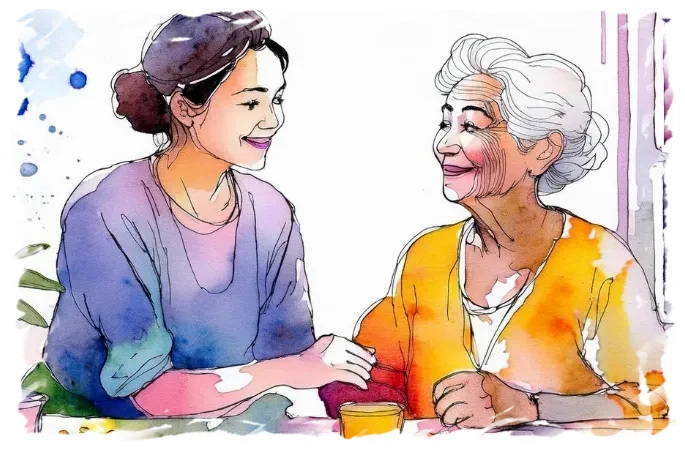I don’t remember my first English word
but I remember all the Khmer-dubbed Thai movies
that raised me in the living room
over the hum of sewing machines from the garage.
Not a word of English was uttered in my home
except for MJ, Madonna and INXS.
I was fluent in song lyrics and Khmer,
I did not stutter.
When my third-grade teacher pulled my parents aside
and asked them to speak more English at home,
my language no longer limbered off my tongue –
it fell flat in fumbling and faltering
like a dog dribbling with two tongues.
On my first trip to Cambodia,
my relatives praised the Australian-born girl
who spoke so much Khmer because
most bau ra te children cannot.
I become a proud owner of my language
laughing freely with aunties and uncles
in only the use of my mother tongue –
chomreabsuor, sokhasabbay, arkoun
I forget I have another language until I fly home
and slip up on a word or two.
My language keeps me close to home –
I bask in conversations with my yeay about prayer and our traditions.
She shares stories with me she cannot share with my siblings.
I watch my sister stumble on every second word
struggling to spit out a sentence.
My brother born of the YouTube generation
learnt English as his first language in an American accent.
I try not to pass judgement when
my sister doesn’t teach her children a single word.
My mum is so proud when she thinks my niece
understands a question she asked in a mix of both
but my niece only comprehends from her tone
and body language.
It dawns on me that she
won’t have the same relationship with her yeay,
like I do.
Language bridges gaps between generations –
that bridge keeps drawing further apart.



